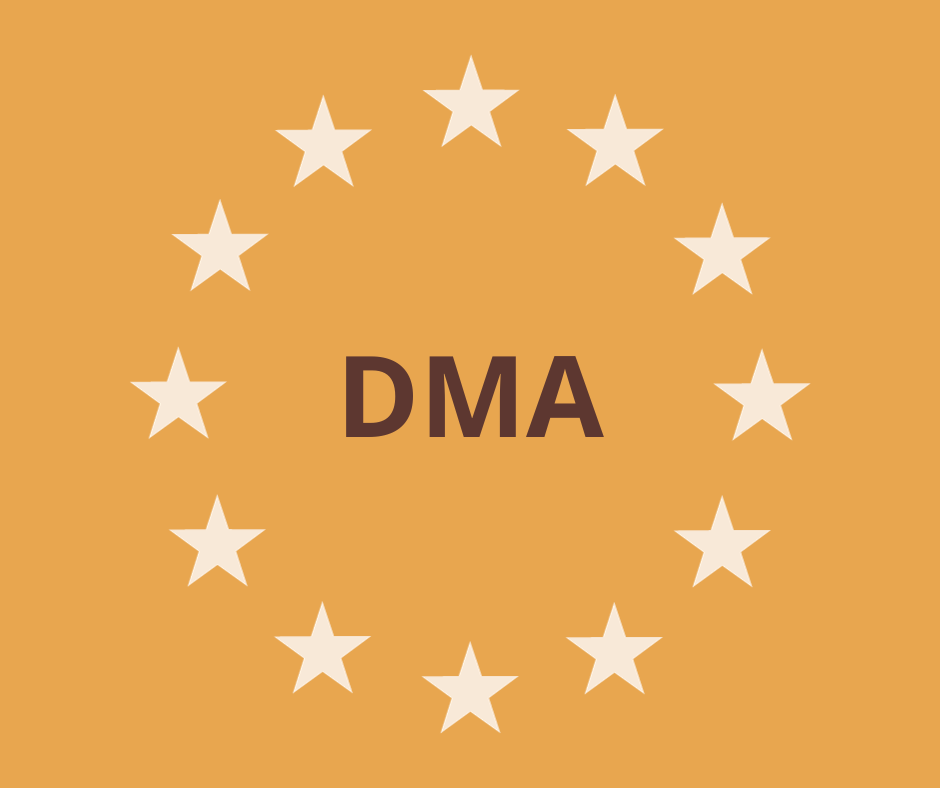
The Digital Markets Act (DMA) is a major regulation introduced by the European Commission to regulate digital markets and promote fair competition between tech giants and smaller entities using their platforms and services.
In this article, we will guide you through the essential aspects of the DMA, helping you understand this key regulation, its implications for businesses, and the innovations it brings to the digital landscape. Whether you're a business leader, marketer, website manager, or legal professional, this resource is designed to provide you with vital information about the DMA and help you prepare for its requirements if you operate in Europe.
Objectives of the DMA
Discover the three main objectives of the DMA, focused on promoting competition, combating unfair practices, and protecting the interests of small businesses and consumers.
1. Promote fair competition: The DMA aims to prevent anticompetitive practices by large digital platforms by imposing fair conduct rules to ensure that small businesses and competitors have fair access to digital markets.
2. Protect users and businesses dependent on large platforms: The DMA proposes measures to protect users and businesses relying on services provided by large digital platforms, including ensuring data portability, transparency in practices, and the ability to choose.
3. Strengthen regulatory oversight: The DMA envisions the creation of a supervisory authority responsible for monitoring and enforcing the rules outlined in the regulation. It also allows for fines to be imposed on platforms for non-compliance.
Who Does the Digital Markets Act Apply To?
The DMA applies to large online platforms in the European market, but small businesses should also understand it, as it will influence their use of these platforms' services.
Key Provisions of the DMA:
- Identification of market gatekeepers: The DMA defines criteria for identifying "market gatekeepers," such as their size and impact on the digital economy.
- Non-discrimination obligations: Gatekeepers must ensure fair and non-discriminatory access to their services for users and competitors.
- Transparency: Gatekeepers must disclose key information about their operations, including ranking criteria used in search results.
- Prohibition of anticompetitive practices: The DMA prohibits certain abusive practices, such as self-preference, where gatekeepers favor their own products or services.
- Supervision by the Digital Markets Unit: The Digital Markets Unit is created to oversee the enforcement of the DMA.
Obligations Imposed on Gatekeeper Platforms by the DMA:
- "Market gatekeeper" platforms must provide fair access to their services, share data with competitors in certain cases, and not bias results in favor of their own products or services.
- They must also disclose information about their operations, such as ranking criteria.
- The Digital Markets Unit monitors and enforces these obligations.
Impact of the DMA on Businesses:
- Businesses must adapt to the new transparency rules, which can foster competition.
- Stricter rules regarding the use of personal data in online advertising may impact business models based on user data collection.
- Businesses can benefit from fair access to gatekeeper platforms to promote their products.
Impact on Innovation:
- The DMA promotes innovation by imposing greater transparency, allowing competitors to access gatekeeper platforms, and preventing anticompetitive practices.
- Transparency rules on ranking algorithms can encourage algorithm improvements.
- However, businesses will need to find innovative ways to comply with the new regulations.
Critiques of the DMA:
- Some critiques focus on excessive regulatory burdens that could hinder innovation and business growth.
- The impacts on small platforms are also a concern, as they may struggle to comply with DMA requirements.
Preparing for the DMA:
- Businesses should prepare by implementing data collection and usage policies that comply with privacy requirements.
- They must obtain explicit user consent for certain activities, including personalized advertising.
- Businesses should closely monitor developments and adapt to new rules and guidelines.
In conclusion, the DMA represents a significant advancement in regulating the European digital market, aiming to promote competition and protect user rights. Its success will depend on effective implementation and its ability to adapt to the ever-evolving industry. Businesses must stay informed and prepared to comply with its requirements while exploring the opportunities it presents.
 Skip site navigation
Skip site navigation